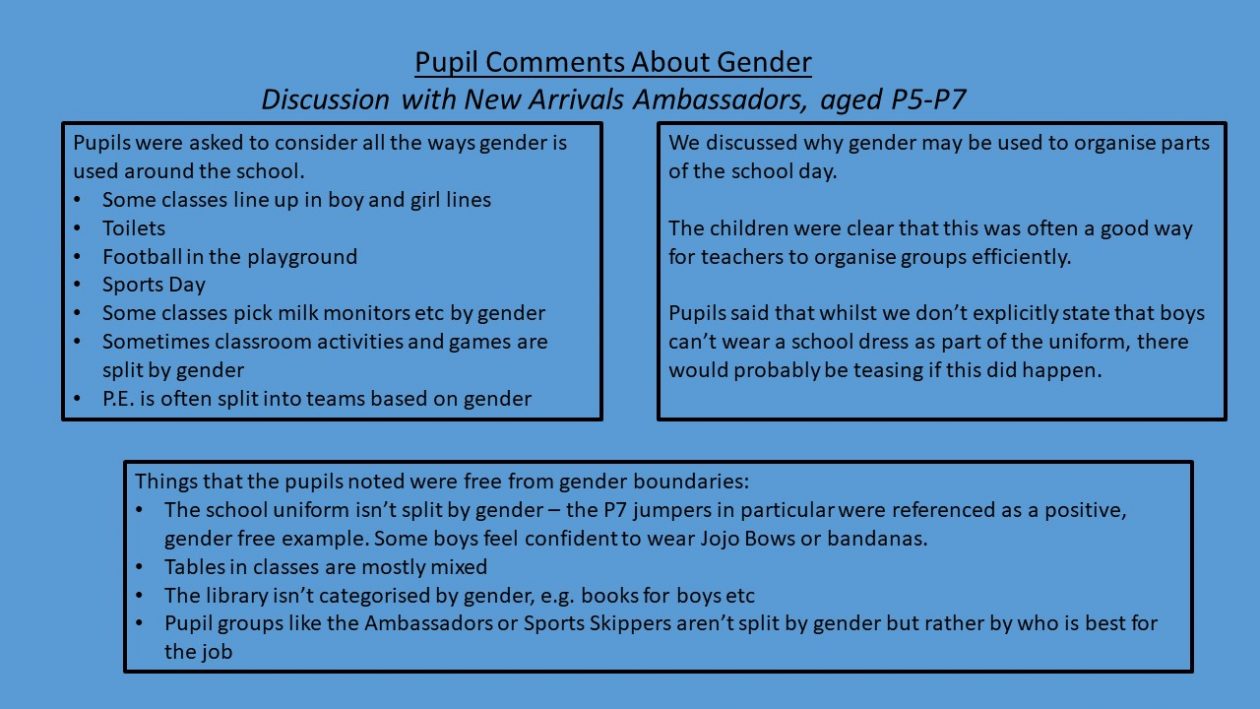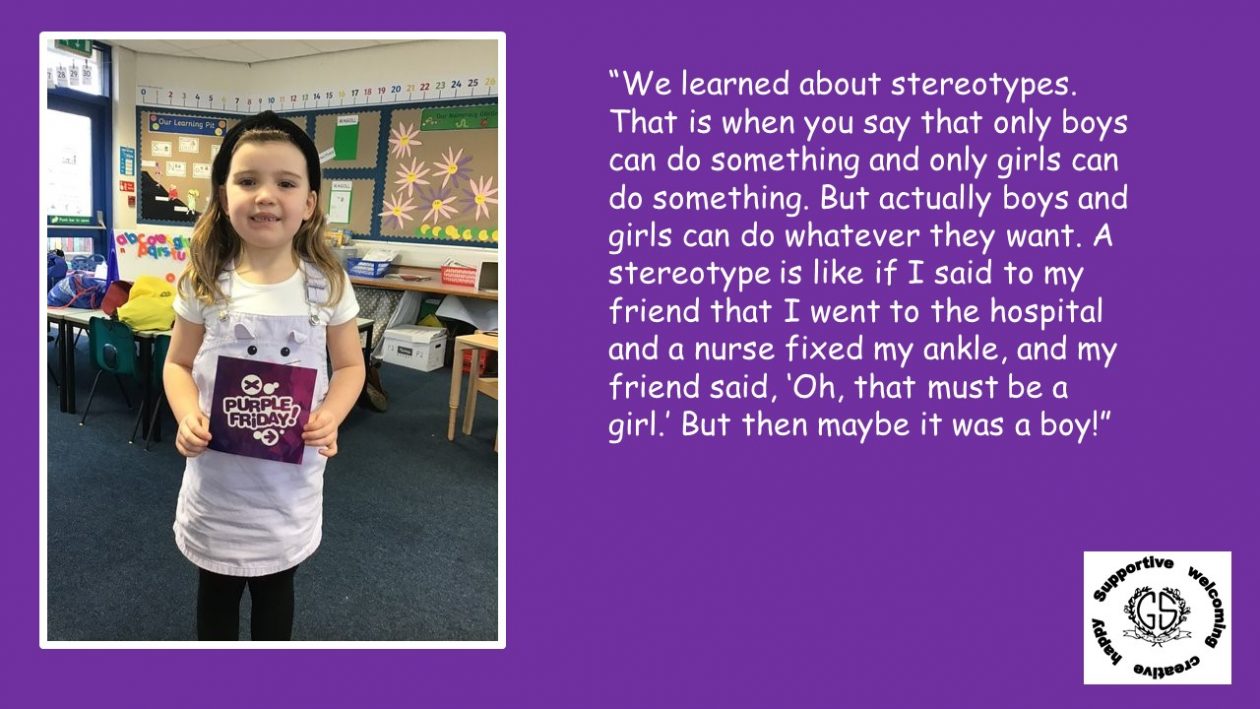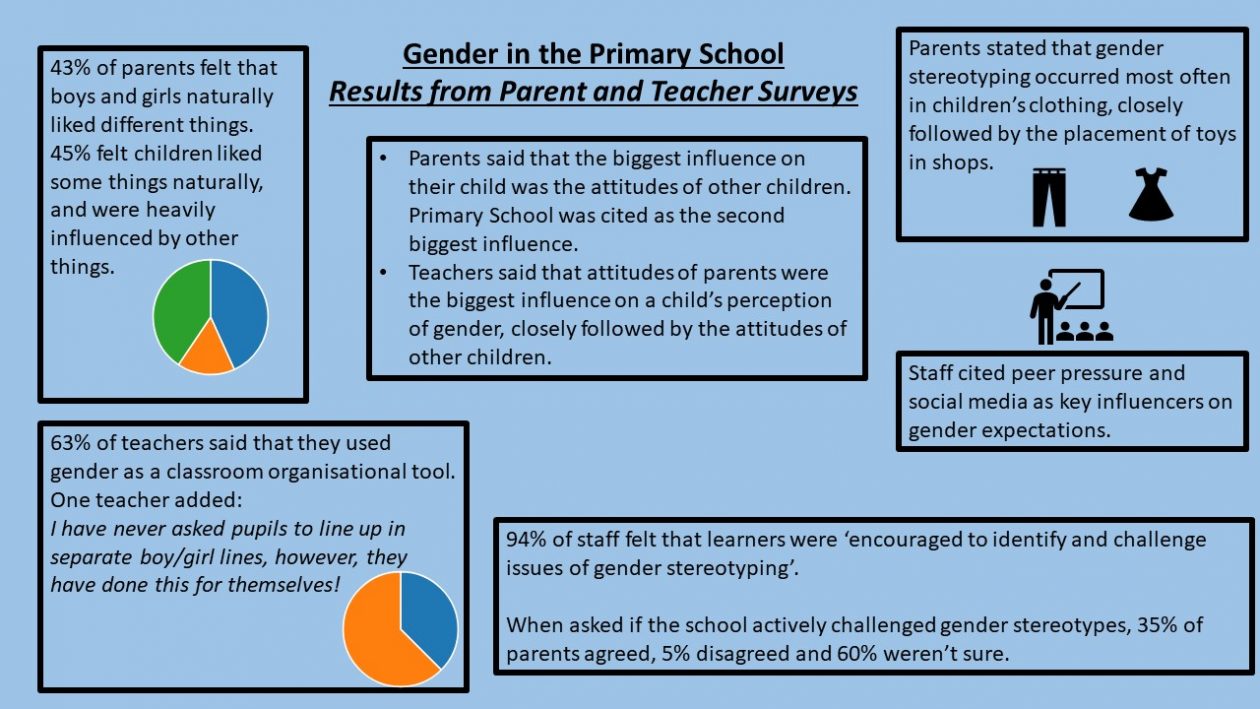What forms of evidence tell me what I have learned?
I have captured data from staff, pupils and parents about gender in the primary school – specifically, in our primary school. This whole enquiry is very specific to my own setting and was sparked by the process of working towards achieving the LGBT Youth Scotland Schools Charter Award and being the first primary school in Edinburgh to do so. Therefore, the conversation around gender in my current setting has something of a unique perspective.
What happened for pupils?
I captured pupil views in several ways.
- Discussion with a pupil leadership group that I run:

- Exploration of gender in the early years with particular focus on a P2 class who were presenting an assembly about gender equality (which sadly had to be postponed due to school closures!)

- Delivering an Equalities programme of work to P6 which focuses on the protected characteristics. Unfortunately this was also disrupted by the school closures, but the lesson on gender was delivered and showed me that children understand, and are somewhat weary of being told, that boys and girls can be whatever they want. However, the discussions unveiled that there still was some unconscious bias there.
‘I think people should be whatever they want. But, like, i’d still assume you meant a girl if you were talking about a nurse and i’d maybe find it weird if a boy was a nurse. But I know I shouldn’t.’
What does this tell me?
Early intervention is key in relation to education and gender. I will discuss this more in my next blog post.
Staff and Parent Views
I surveyed staff and parents for their views on gender. Below is a summary and comparison of the key findings.

What does this tell me?
There has been a more prominent discussion of gender and teaching practice, which I am pleased about. It is important to note that there is a discrepancy between staff’s feeling that children are encouraged to identify and challenge gender stereotypes, whilst the majority of parent’s were not sure if this was the case.

